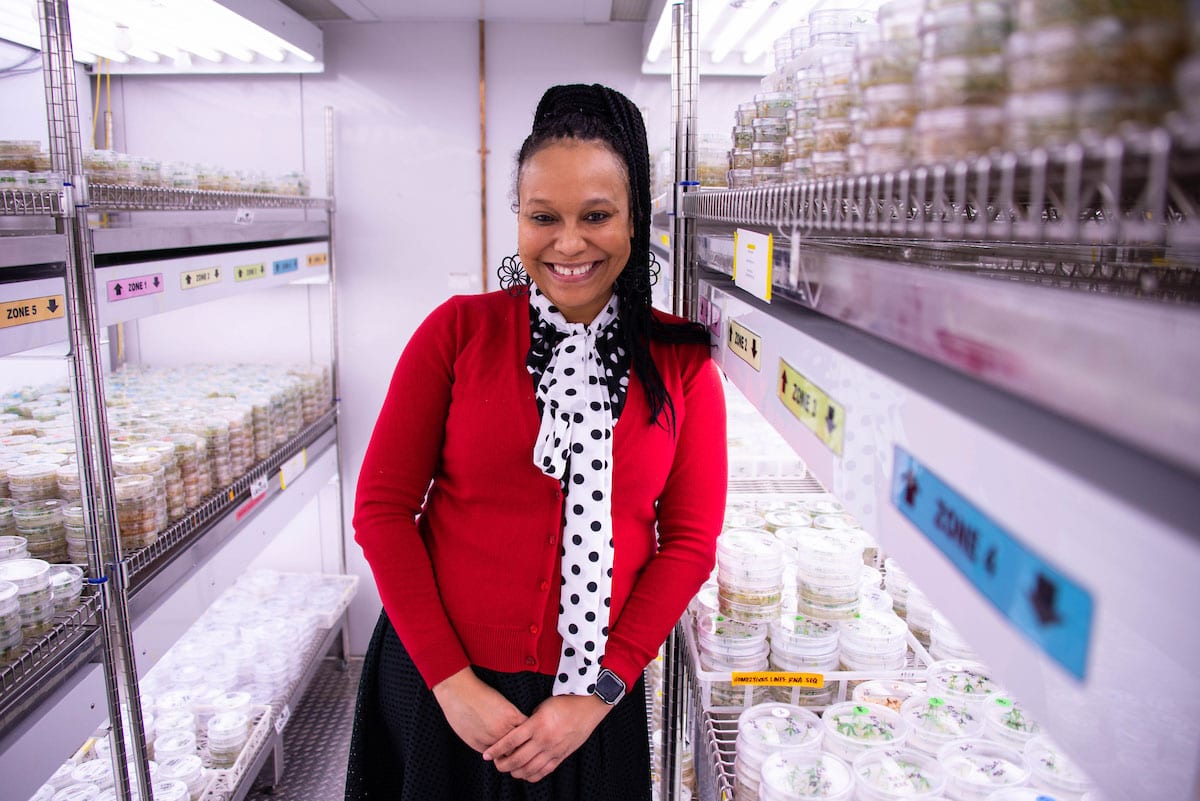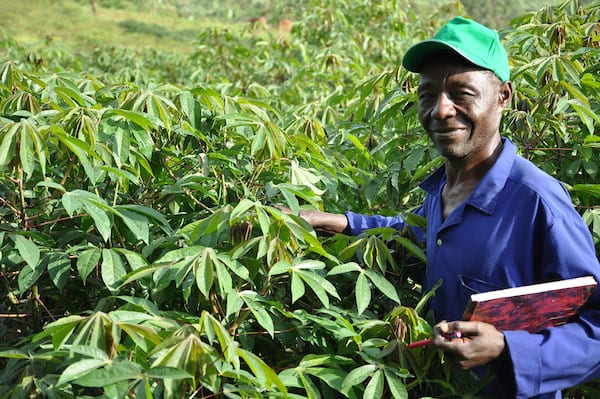Improving Cassava for Food Security: Meet Tira Jones
Tira Jones, Senior Laboratory Technician in Dr. Nigel Taylor’s Lab, has been at the Danforth Center for more than fifteen years. During that time, her role and responsibilities have become more and more advanced, as she has progressed from doing plant propagations to learning how to do complex cassava plant transformations. Cassava remains a tough crop to work with, but so far she has produced more than 1,000 transgenic cassava plant lines.
Many of the cassava plants that Tira has worked on have been sent to field trials in Kenya, Uganda, Rwanda and Nigeria, where scientists test the transgenic cassava plants with improved resistance to cassava brown streak disease resistance and elevated nutritional content, in real-world conditions. Tira’s contributions are vital to the work of the Taylor Lab, whose research has the potential to improve food security and nutrition for millions of people in Africa. “I completely rely on Tira,” explains Nigel. “She has been essential to all of the success we’ve had with transgenic cassava.”
It is amazing to consider that Tira works with the cassava varieties at the single cell stage in Petri dishes, selecting the best and encouraging them to develop into embryos and to germinate and produce small plantlets. When multiplied and established in the field they grown to become large bushes, some more than 10 feet high, with hundreds in each field. All came from the single cells selected and cultured by Tira and her colleagues at the Danforth Center.
The VIRCA Plus international team is the first to successfully stack virus resistance plus iron and zinc biofortification in a non-cereal crop.

Tira Jones, Senior Laboratory Technician in Dr. Nigel Taylor’s lab, standing in a growth chamber in the Danforth Center’s Plant Transformation Facility
For Tira, the most rewarding part of her job is knowing that she is improving a staple food crop in Africa. “One of my favorite moments at the Center was when Nigel did a presentation on our work, and I saw photos of cassava plants that I worked on in the field. I am proud to work on a team that is helping improve food security in under-developed countries,” says Tira.
Tira is also passionate about training visiting scientists from Africa. “We do that because it is important for them to learn about the technology we have here, and then they can bring it back to their home countries and share the knowledge even further,” explains Tira. “As far as creating transgenic cassava plants, they have limited resources so it is important that we can provide them with training, tools, and resources so they can do it in their countries.” Tira also enjoys building relationships with the visiting scientists and learning about their cultures and their families.

Farmer at a cassava field trial
“Knowing that I am making an impact on other people in the world and improving food security through plant science is really enjoyable to me,” she says.
Tira encourages other Black women interested in pursuing the sciences to do research on Black women in science to find role models to look up to. She also found strength in watching documentaries and movies about Black women in science. “Hidden Figures is one of my all-time favorite movies,” says Tira.
If you know a young person interested in science, visit our Education Research and Outreach page to learn about ways you can engage them in meaningful research experiences at all ages.